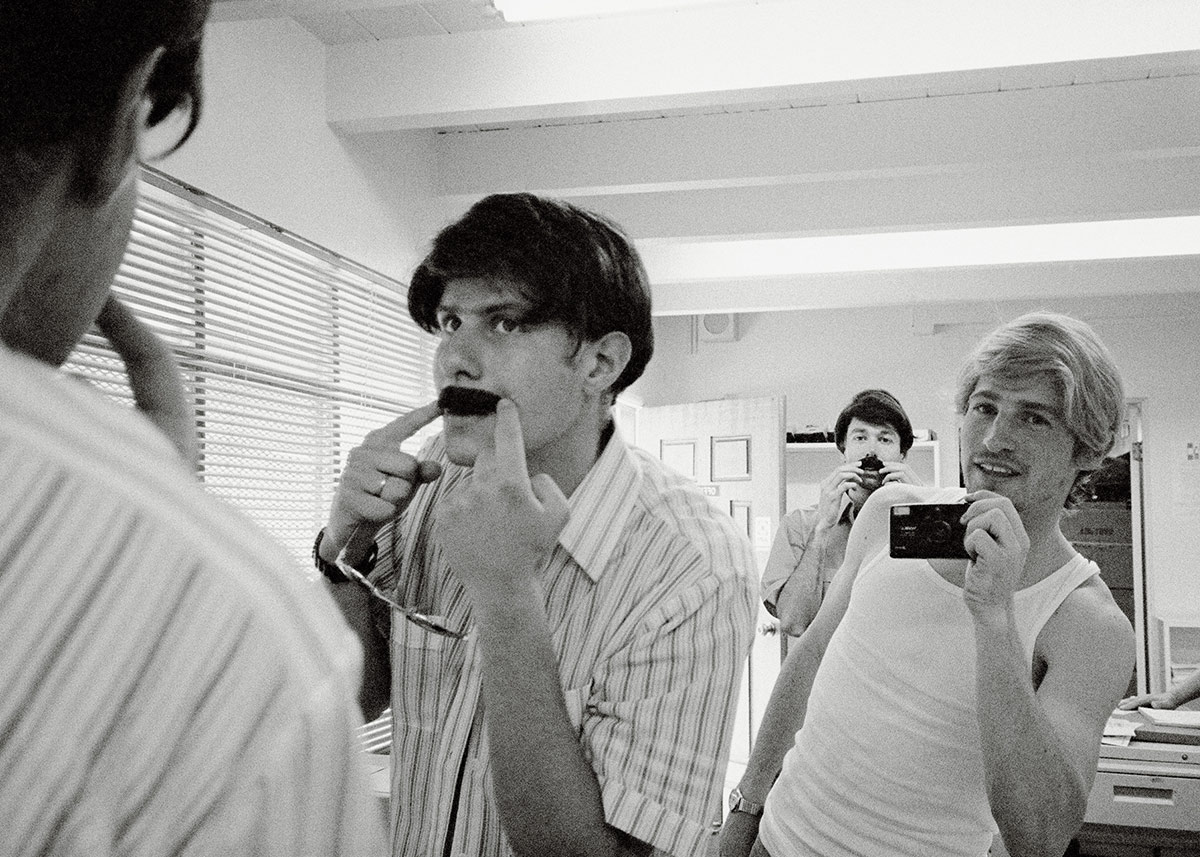In April of 2019, Michael “Mike D” Diamond and Adam “Ad-Rock” Horovitz took over the Kings Theater in their home turf of Brooklyn for the first live Beastie Boys show in a decade. But it wasn’t to play their hits; it was to tell their story, with the help of still photos, archival clips, and music from their heyday. Spike Jonze’s new film of the event, “Beastie Boys Story,” is a potent mixture of live performance movie, bio-documentary, and adaptation of their companion volume “Beastie Boys Book,” and if that makes it sound schizophrenic or unfocused, it’s not. It is, in essence, a two-hour curtain call, a celebration of not only their music but their friendship, and a chance for the duo to have the last word on their legacy.
“We’re Beastie Boys from New York City,” they announce at the top of the show, though that’s not entirely correct; there is one member missing from that state, Adam “MCA” Yauch, who died of cancer in 2012. But as Mike D and Ad-Rock walk the Kings stage in front of a giant screen, mics in hand, to tell their story (with occasional interruptions, corrections, and razzing), Yauch occasionally contributes as well, via archival interviews and fond recollections.
And they tell some terrific stories, sharing the tidbits you want about the songs and videos you love, reveling in their triumphs and missteps, and indulging in some forgotten footnotes (a clip from Ad-Rock’s movie debut in “Lost Angels” – “It’s awful, please don’t go look it up” – is played so often it becomes a running joke). But this isn’t just a greatest-hits show; they walk (literally) through their writing and recording process, and spill the tea on their woes with the recording industry (specifically the troublesome process of wiggling free from Def Jam Records and proclaiming their artistic independence). Best of all, they go into the weeds on the Dylan-esque evolution of their sound – how the idea of a “Beastie Boys record” changed as they did – and how they ended up finding their true selves in the comparative obscurity that came in the period after “License to Ill.”
But this isn’t just a chronicle of their career, either. It’s the story of their friendship – how it manifested itself in the work and how it was tested by their success and failure. Most of all, Diamond and Horovitz’s narrative vibrates with their love for their departed comrade, particularly in its later sections. Yauch’s death is still hard for them to talk about; Ad-Rock visibly chokes up recalling what would become their last gig, and later has to turn away from the camera and crowd because he’s so overcome with emotion, pleading “Finish that, I can’t,” to Diamond, off-mic. It’s an honest moment of genuine grief, and it’s profoundly affecting.
Jonze directed both the film and the original live show, as well as co-writing the script and co-producing. He occasionally makes his presence known, leaving in little technical snafus and his off-stage apologies (“I’m sorry, I fucked up the Teleprompters”), but he’s mostly felt in the gonzo energy of the piece, which, at its best, matches the many music videos he directed for the group. The film beautifully captures the energy and enthusiasm of being young and creative and excited, and selects the right combination of old home movies and public access appearances to return the viewer to that flash of pre-stardom. The live show photography is fairly straightforward – full-stage shots, speaker close-ups, audience reactions – though Jonze throws in a few fun flourishes to keep things interesting.
And frankly, he doesn’t have to do much more than point his cameras at Horovitz and Diamond. They’re funny guys, loose, and wry and self-deprecating, which isn’t surprising (they were never a band that took themselves very seriously). What’s refreshing is how genuinely thoughtful, introspective, and, at times, apologetic they are about their journey. They reckon with their indiscretions and mistakes (well, most of them), particularly in that first flush of post-“Fight For Your Right” fame; “We morphed from making fun of party bros to actually becoming them,” they explain, and “Shit got really blurry.”
Most of us, after all, lived our dickhead twenties in private; as they matured, the Beasties’ willingness to not only condemn their past but apologize for it became one of their most admirable qualities. It also, in a way, fits right into the broad beats of the celebrity story; regrettably bad behavior is pro forma in rise-to-success stories, be it a “Behind the Music” episode or an Oscar-friendly biopic. But the Beastie Boys ask forgiveness for not just regrettable actions, but regrettable art. It’s there in candid confessions like Diamond’s “I didn’t even recognize the person I had become at that time,” but it’s also there in the deep breath Horovitz takes after reciting, through a layer of palpable cringe, the lyrics to “Girls.” People can change, no matter how famous they are, and as Ad-Rock explains, “I’d rather be a hypocrite than the same person forever.” That kind of reflection and honesty is what puts “Beastie Boys Story” a cut above the typical celebrity hagiography, and adds extra flavor to its genre stew: in addition to live performance film, bio-doc, and book adaptation, it’s also a coming-of-age story. [A-]





